第47章 CHAPTER VIII.(2)
The Arabs are especially fond of relics; thus, upon the return from a pilgrimage to Mecca, the "hadji," or pilgrim, is certain to have purchased from some religious Faky of the sacred shrine either a few square inches of cloth, or some such trifle, that belonged to the prophet Mahomet. This is exhibited to his friends and strangers as a wonderful spell against some particular malady, and it is handed about and received with extreme reverence by the assembled crowd. I once formed one of a circle when a pilgrim returned to his native village: we sat in a considerable number upon the ground, while he drew from his bosom a leather envelope, suspended from his neck, from which he produced a piece of extremely greasy woollen cloth, about three inches square, the original colour of which it would have been impossible to guess. This was a piece of Mahomet's garment, but what portion he could not say. The pilgrim had paid largely for this blessed relic, and it was passed round our circle from hand to hand, after having first been kissed by the proprietor, who raised it to the crown of his head, which he touched with the cloth, and then wiped both his eyes. Each person who received it went through a similar performance, and as ophthalmia and other diseases of the eyes were extremely prevalent, several of the party had eyes that had not the brightness of the gazelle's;nevertheless, these were supposed to become brighter after having been wiped by the holy cloth. How many eyes this same piece of cloth had wiped it would be impossible to say, but such facts are sufficient to prove the danger of holy relics, that are inoculators of all manner of contagious diseases.
I believe in holy shrines as the pest spots of the world. We generally have experienced in Western Europe that all violent epidemics arrive from the East. The great breadth of the Atlantic boundary would naturally protect us from the West, but infectious disorders, such as plague, cholera, small-pox, &c. may be generally tracked throughout their gradations from their original nests; those nests are in the East, where the heat of the climate acting upon the filth of semi-savage communities engenders pestilence.
The holy places of both Christians and Mahometans are the receptacles for the masses of people of all nations and classes who have arrived from all points of the compass; the greater number of such people are of poor estate; many, who have toiled on foot from immense distances, suffering from hunger and fatigue, and bringing with them not only the diseases of their own remote countries, but arriving in that weak state that courts the attack of any epidemic. Thus crowded together, with a scarcity of provisions, a want of water, and no possibility of cleanliness, with clothes that have been unwashed for weeks or months, in a camp of dirty pilgrims, without any attempt at drainage, an accumulation of filth takes place that generates either cholera or typhus; the latter, in its most malignant form, appears as the dreaded "plague." Should such an epidemic attack the mass of pilgrims debilitated by the want of nourishing food, and exhausted by their fatiguing march, it runs riot like a fire among combustibles, and the loss of life is terrific. The survivors radiate from this common centre, upon their return to their respective homes, to which they carry the seeds of the pestilence to germinate upon new soils in different countries.
Doubtless the clothes of the dead furnish materials for innumerable holy relics as vestiges of the wardrobe of the Prophet; these are disseminated by the pilgrims throughout all countries, pregnant with disease; and, being brought into personal contact with hosts of true believers, Pandora's box could not be more fatal.
Not only are relics upon a pocket scale conveyed by pilgrims, and reverenced by the Arabs, but the body of any Faky, who in lifetime was considered extra holy, is brought from a great distance to be interred in some particular spot. In countries where a tree is a rarity, a plank for a coffin is unknown; thus the reverend Faky, who may have died of typhus, is wrapped in cloths and packed in a mat. In this form he is transported, perhaps, some hundred miles, slung upon a camel, with the thermometer above 130 degrees Fahr. in the sun, and he is conveyed to the village that is so fortunate as to be honoured with his remains. It may be readily imagined that with a favourable wind, the inhabitants are warned of his approach some time before his arrival. Happily, long before we arrived at Sofi, the village had been blessed by the death of a celebrated Faky, a holy man who would have been described as a second Isaiah were the annals of the country duly chronicled. This great "man of God," as he was termed, had departed this life at a village on the borders of the Nile, about eight days' hard camel-journey from Sofi; but from some assumed right, mingled no doubt with jobbery, the inhabitants of Sofi had laid claim to his body, and he had arrived upon a camel horizontally, and had been buried about fifty yards from our present camp. His grave was beneath a clump of mimosas that shaded the spot, and formed the most prominent object in the foreground of our landscape. Thither every Friday the women of the village congregated, with offerings of a few handfuls of dhurra in small gourd-shells, which they laid upon the grave, while they ATE THE HOLY EARTH in small pinches, which they scraped like rabbits, from a hole they had burrowed towards the venerated corpse; this hole was about two feet deep from continual scratching, and must have been very near the Faky.